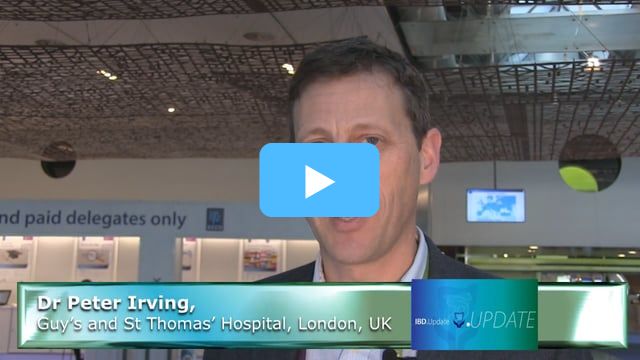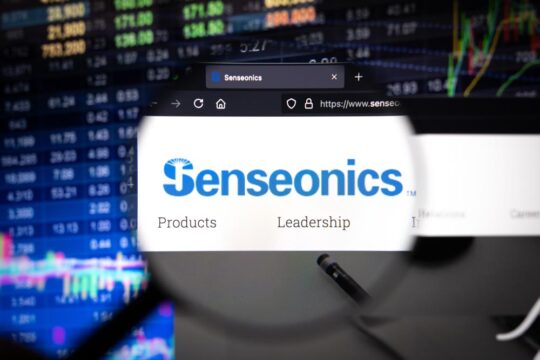Advertisment
Maximising bang for your buck in IBD

Dr Peter Irving (London) talks about one of the hot topics for the future -Maximising the bang for your buck in IBD. He highlights the possible benefits of treating to target and what data might be coming out soon to help guide cost effective management of IBD.
Dr Peter Irving from London outlined how drug therapy can be optimised to maximise cost efficacy in a time where the incidence and prevalence of IBD is increasing all over the world and the costs of IBD treatment are more and more driven by the use of biological drugs.1, 2
This can be achieved without impacting on care, first and foremost by using cheaper drugs first where appropriate. Azathioprine monotherapy has been shown to induce and maintain remission in UC3 and CD4 and induce mucosal healing in CD.5 The NORSWITCH study shows that originator anti-TNF therapy can be switched to biosimilar infliximab with maintained remission rates in CD and UC.6
Additionally, all drugs should be used in the most effective way possible – for azathioprine this means measuring metabolites and using adjuvant therapy with allopurinol to optimise drug levels7, 8 whereas effective use of anti-TNF therapy means starting early and using effective combination therapy.
Data in rheumatoid arthritis shows that stratifying patients and treating to target with early aggressive therapy results in higher remission rates, improved quality of life and reduced treatment costs after 3 years of treatment compared with conventional care.9, 10 In IBD patients who received top-down therapy, superior endoscopic healing compared with conventional step-up therapy at two years11 was linked to higher remission rates and lower costs in years 3 and 412, 13
Withdrawal of expensive drugs should be considered when possible – data from the STORI trial in the US and from a recent UK meta-analysis shows that some, but far from all, patients relapse after withdrawal of biological therapy.14, 15
Last but not least, Dr Irving reminded the audience that surgery may sometimes be a more cost-effective option in some patients, and that although biological drugs is the main cost driver it is important to also optimise the use of other resources that contribute to the overall costs, such as telephone consultations instead of clinic visits and lab investigations instead of colonoscopy.
References
- van der Valk ME, Mangen MJ, Leenders M, et al. Healthcare costs of inflammatory bowel disease have shifted from hospitalisation and surgery towards anti-TNFalpha therapy: results from the COIN study. Gut 2014;63:72-9.
- van der Valk ME, Mangen MJ, Severs M, et al. Evolution of Costs of Inflammatory Bowel Disease over Two Years of Follow-Up. PLoS One 2016;11:e0142481.
- Timmer A, McDonald JW, Tsoulis DJ, et al. Azathioprine and 6-mercaptopurine for maintenance of remission in ulcerative colitis. Cochrane Database Syst Rev 2012:CD000478.
- Prefontaine E, Macdonald JK, Sutherland LR. Azathioprine or 6-mercaptopurine for induction of remission in Crohn’s disease. Cochrane Database Syst Rev 2010:CD000545.
- Mantzaris GJ, Christidou A, Sfakianakis M, et al. Azathioprine is superior to budesonide in achieving and maintaining mucosal healing and histologic remission in steroid-dependent Crohn’s disease. Inflamm Bowel Dis 2009;15:375-82.
- Goll GL, Olsen IC, Jorgensen KK, et al. Biosimilar Infliximab (CT-P13) Is Not Inferior to Originator Infliximab: Results from a 52-Week Randomized Switch Trial in Norway [abstract]. Arthritis Rheumatol 2016;68 (suppl 10).
- Gearry RB, Barclay ML. Azathioprine and 6-mercaptopurine pharmacogenetics and metabolite monitoring in inflammatory bowel disease. J Gastroenterol Hepatol 2005;20:1149-57.
- Sanderson J, Ansari A, Marinaki T, et al. Thiopurine methyltransferase: should it be measured before commencing thiopurine drug therapy? Ann Clin Biochem 2004;41:294-302.
- Vermeer M, Kuper HH, Bernelot Moens HJ, et al. Adherence to a treat-to-target strategy in early rheumatoid arthritis: results of the DREAM remission induction cohort. Arthritis Res Ther 2012;14:R254.
- Vermeer M, Kievit W, Kuper HH, et al. Treating to the target of remission in early rheumatoid arthritis is cost-effective: results of the DREAM registry. BMC Musculoskeletal Disorders 2013;14:350.
- D’Haens G, Baert F, van Assche G, et al. Early combined immunosuppression or conventional management in patients with newly diagnosed Crohn’s disease: an open randomised trial. Lancet 2008;371:660-7.
- Baert F, Moortgat L, Van Assche G, et al. Mucosal healing predicts sustained clinical remission in patients with early-stage Crohn’s disease. Gastroenterology 2010;138:463-8; quiz e10-1.
- Baert F, Moortgat L, Assche GV, et al. Pharmaco-economic impact of mucosal healing in early Crohn’s disease: An analysis of the step-up-top-down prospective follow-up study. Journal of Crohn’s and Colitis 2010;4:S8.
- Louis E, Mary JY, Vernier-Massouille G, et al. Maintenance of remission among patients with Crohn’s disease on antimetabolite therapy after infliximab therapy is stopped. Gastroenterology 2012;142:63-70 e5; quiz e31.
- Kennedy NA, Warner B, Johnston EL, et al. Relapse after withdrawal from anti-TNF therapy for inflammatory bowel disease: an observational study, plus systematic review and meta-analysis. Aliment Pharmacol Ther 2016.





